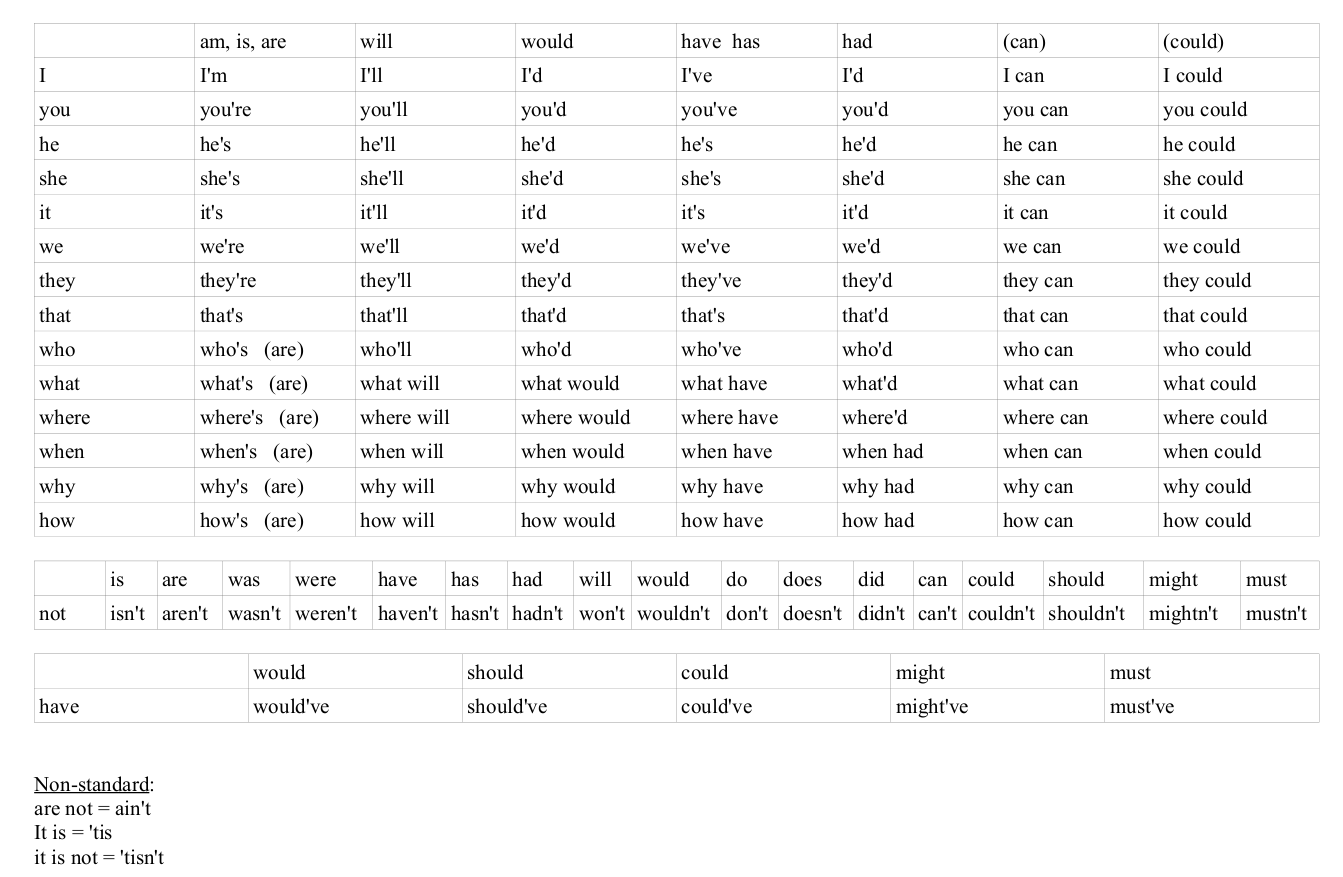Imitation
Try to mimic the pronunciation in the following video.
Review
- What kinds of words are usually stressed?
- What kinds of words are usually unstressed?
- When do you break the stress rules?
Practice
Mark the stressed words:
- July is the hottest month of the year.
- How long did you go swimming for?
- These were the events leading up to her birthday celebration.
In the second sentence, how would you give it a better rhythm?
Write the IPA for the third sentence.
Unstressed words in a sentence
Stress count
Notice that even though the number of words in the following sentences are different, the number of stressed syllables is the same.
ˈKids ˈeat ˈice.
The ˈkids ˈeat ˈice.
The ˈkids are ˈeating ˈice.
The ˈkids are ˈeating some ˈice.
The ˈkids are ˈeating some ˈice cream.
The ˈkids are ˈeating some ˈice cream with me.
The ˈkids will be ˈeating some ˈice cream with me.
ˈDon’t ˈfeed ˈbears.
ˈDon’t ˈfeed the ˈbears.
ˈDon’t ˈfeed them the ˈbears.
ˈDon’t ˈfeed them to the ˈbears.
You ˈdon’t ˈfeed them to the ˈbears.
You ˈdon’t want to ˈfeed them to the ˈbears.
You ˈdon’t want to ˈfeed them to the ˈbears now.
Differentiating unstressed words
Listen to the unstressed words in the following sentences:
(Sentences taken from Manual of American English Pronunciation by Prator and Robinett.)
ˈWhere did (he, she, it) ˈgo?
ˈPlease ˈgive (them, him, her) the ˈtickets.
Is ˈBob (on, in) the ˈbus?
It’s ˈbetter (than, that) you ˈthink it is.
Would you ˈlike some ˈmoney (and, or, for) a ˈcar?
The ˈstore (can, could, would) ˈbring you the ˈpackage.
They ˈhaven’t ˈgiven (us, as) ˈmuch ˈmoney.
ˈWhen are you going to ˈtell me (the, a, her) ˈstory?
Were you ˈasked (your, her) ˈname?
The ˈbook ˈcame (from, for) the ˈlibrary.
Contractions
Contractions are two words that are pronounced like one.
Be contractions
| am, is, are | |
| I | I’m |
| you | you’re |
| he | he’s |
| she | she’s |
| it | it’s |
| we | we’re |
| they | they’re |
| that | that’s |
| who | who’s (are) |
| what | what’s (are) |
| where | where’s (are) |
| when | when’s (are) |
| why | why’s (are) |
| how | how’s (are) |
Will contractions
| will | |
| I | I’ll |
| you | you’ll |
| he | he’ll |
| she | she’ll |
| it | it’ll |
| we | we’ll |
| they | they’ll |
| that | that’ll |
| who | who’ll |
| what | what will |
| where | where will |
| when | when will |
| why | why will |
| how | how will |
Would contractions
| would | |
| I | I’d |
| you | you’d |
| he | he’d |
| she | she’d |
| it | it’d |
| we | we’d |
| they | they’d |
| that | that’d |
| who | who’d |
| what | what would |
| where | where would |
| when | when would |
| why | why would |
| how | how would |
Have contractions
| have has | |
| I | I’ve |
| you | you’ve |
| he | he’s |
| she | she’s |
| it | it’s |
| we | we’ve |
| they | they’ve |
| that | that’s |
| who | who’ve |
| what | what have |
| where | where have |
| when | when have |
| why | why have |
| how | how have |
Had contractions
| had | |
| I | I’d |
| you | you’d |
| he | he’d |
| she | she’d |
| it | it’d |
| we | we’d |
| they | they’d |
| that | that’d |
| who | who’d |
| what | what’d |
| where | where’d |
| when | when had |
| why | why had |
| how | how had |
Can combinations
| (can) | |
| I | I can |
| you | you can |
| he | he can |
| she | she can |
| it | it can |
| we | we can |
| they | they can |
| that | that can |
| who | who can |
| what | what can |
| where | where can |
| when | when can |
| why | why can |
| how | how can |
Could combinations
| (could) | |
| I | I could |
| you | you could |
| he | he could |
| she | she could |
| it | it could |
| we | we could |
| they | they could |
| that | that could |
| who | who could |
| what | what could |
| where | where could |
| when | when could |
| why | why could |
| how | how could |
Not contractions
| not | |
| is | isn’t |
| are | aren’t |
| was | wasn’t |
| were | weren’t |
| have | haven’t |
| has | hasn’t |
| had | hadn’t |
| will | won’t |
| would | wouldn’t |
| do | don’t |
| does | doesn’t |
| did | didn’t |
| can | can’t |
| could | couldn’t |
| should | shouldn’t |
| might | mightn’t |
| must | mustn’t |
Would contractions
| have | |
| would | would’ve |
| should | should’ve |
| could | could’ve |
| might | might’ve |
| must | must’ve |
Summary

Non-standard contractions
| going to | gonna | gənə | I’m gonna see her next week. |
| got to | gotta | ‘gɑɾə | I gotta go. |
| has to | hasta | ‘hæstə | She hasta finish her homework first. |
| have to | hafta | ‘hæftə | What do you hafta do? |
| ought to | oughta | ‘ɔdə | He oughta be done by now. |
| used to | usta | ‘justə | I usta play that when I was a kid. |
| want to | wanna | ‘wɑnə | What do you wanna do? |
| kind of | kinda | ‘kaɪnə | It’s kinda cold in here. |
| a lot of | a lotta | ə’lɑɾə | Wow, there’s a lotta people in here. |
Note that the meaning can change based on the pronunciation:
I’m gonna be good.
I’m going to church.
What have we gotta eat?
What have we got to eat?
What does she hafta say?
What does she have to say?
It’s what he hasta do.
It’s all he has to work with.
This is what you usta cook with.
This is what you used to cook with.
How much do you wanna do it?
How much does he want to do it?
Sentences based on Manual of American English by Prator and Robinett
A word of caution
Wanna, gonna, gotta and the others are spoken English and informal written English. You shouldn’t use them to write in formal or academic settings. You may see them in informal settings like pop songs, text messages between friends, or movie subtitles.
Be careful of being too informal
‘wʌʤjə’du
‘waɪonʔjə’seɪt
‘ʤiʔ’jɛʔ noʊ ʤju
Which means
What did you do?
Why don’t you say it?
Did you eat yet? No, did you?
Homework
Assignment 1
This is the final exam dialog. Mark the stressed words according to the rules.
Good morning, Susan. Where are you going?
Hi, Mrs. Jones! I’m going to the store.
I need to go, too. Let’s go together.
Sounds good. Are you buying food?
Yes. I want to get something healthy for my family.
Will you get fruit or vegetables?
Yes, but there’s a problem.
My kids don’t like vegetables, and my husband doesn’t like fruit.
So will you get fruit or vegetables?
I think I’ll get both: apples, bananas, carrots, and tomatoes.
You have two kids, don’t you?
Yes. Two boys.
I’m sure they eat a lot, don’t they?
That’s for sure. They eat more than my husband does.
How often do you have to go shopping?
About twice a week.
Do you usually walk to the store?
No, I usually drive to the store.
Well, here we are.
Assignment 2
Find one minute of audio speaking from a native speaker. Transcribe it in IPA.
